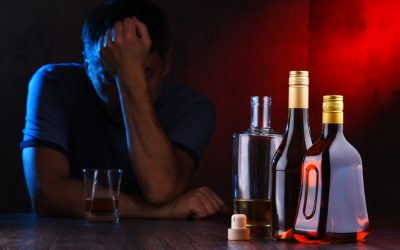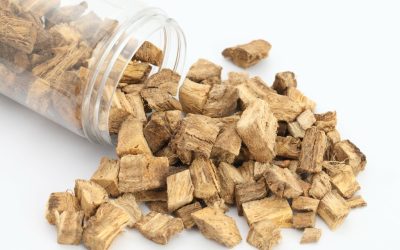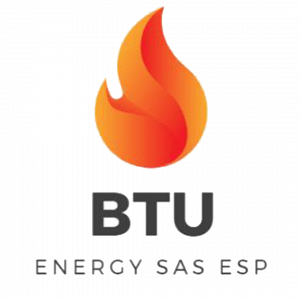Alcohol Induced Panic Attacks What are they and Can you
If you already have an anxiety or panic disorder, you may be more likely to experience these symptoms after drinking alcohol. But alcohol can also trigger anxiety even if you don’t have an existing mental health issue. It’s common for people with social anxiety disorder to drink alcohol to cope with social interactions. Doing this can lead to a dependence on alcohol during socializing, which can make anxiety symptoms worse. If you struggle with panic attacks and feelings of anxiety, it is important to understand how alcohol can affect your mental health and potentially make these symptoms worse.
Talk to your doctor about medications, therapy, and support groups that can help you manage your alcohol consumption. Whether you have a mental health condition like anxiety or not, certain behaviors can signal that your relationship with alcohol could cause concern. Even if someone starts drinking alcohol as a way to cope with anxiety, it can quickly have the opposite effect.
Understanding the Link Between Alcohol And Panic Attacks
If you’re still feeling anxious after a few weeks, contact your GP surgery. Talking therapies like CBT (cognitive behavioural therapy), can help you learn to spot unhelpful patterns of behaviour does alcohol cause panic attacks and help you to develop coping strategies. But if drinking never ends, and the alcohol use becomes chronic, you might begin to see how anxiety and alcohol misuse can feed into each other.
- In this article, we look at the links between alcohol and anxiety, the risks, and how to manage anxiety and alcohol in daily life.
- In that case, our medical professionals and psychiatrists are likely to suggest that this could signify a psychological dependency on drink.
- Regardless of whether the person is high-functioning, alcohol addiction is a severe disease.
- As the person becomes addicted they develop a tolerance to alcohol – this means that they have to drink more to get the same effect.
- These may make a person feel uneasy, dizzy, and irritable, and may lead to a panic attack.
However, when the effects of alcohol start to wear off, your serotonin levels decrease. To understand exactly why this happens, chemically, it’s important to understand the role of GABA—a neurotransmitter—in the brain and body. “Hangxiety” describes the regret, worry, and levels of anxiety felt after a night of heavy drinking. While the term may be informal, the science isn’t—there’s plenty of data to explain this experience. Research suggests that there is a link between alcohol consumption and anxiety. Anxiety disorders and alcohol use disorder (AUD) often occur together.
Similar symptoms to those seen in panic attacks:
Those with AUD may suffer from alcohol withdrawal, which includes physical symptoms of anxiety, such as rapid heartbeat, nausea, and shaking. However, over time or in excess amounts, drinking alcohol can lead to increased levels of anxiety and stress. Alcohol can also make anxiety worse because it affects the levels of other mood-influencing chemicals like serotonin.

More cancers could be prevented, she says, if people fully understood the risks of alcohol. Understanding these risks would lead to more fully informed decisions about alcohol use among individuals and families, including cancer survivors and those with a family cancer history. Cutting the drinking off before it can develop into addiction can help prevent its devastating outcomes. Attending educational programs can help you or your loved one identify the signs and negative effects of alcohol to avoid addiction. While every person’s response to alcohol is different, your reaction may make your partner uncomfortable.
Can alcohol help with anxiety?
Instead of alcohol, consider talking to a mental health professional about effective anxiety management options, which may include psychotherapy and medication. It is also common for people to develop panic attacks for the first time as a result of alcohol abuse. Those who binge drink may find that they suffer attacks in the days after a big night out. Some people experience them as part of their hangover, and they can be intense because they are combined with all the other unpleasant symptoms that accompany the morning after. There is also the possibility that some of the other alcohol withdrawal symptoms mimic or contribute to the sensations that you feel during a panic attack. For instance, alcohol withdrawal and panic attacks can both cause changes in your heart rate that might feel like palpitations.

About 20 percent of people with social anxiety disorder also suffer from alcohol dependence. Drinking excessive amounts of alcohol can also have noticeable physical and mental consequences. Over time, consuming too much alcohol can lead to blackouts, loss of memory, and even brain damage (especially if it causes other health problems, such as liver damage). These issues can create more anxiety as you cope with their symptoms.
What is Anxiety Disorder?
The chemical spikes and dips you experience from heavy drinking catch up to you. People who consume large quantities of alcohol several times per week or more put themselves at risk for long-term damage. The Mayo Clinic defines panic attacks as a sudden episode of intense fear that triggers severe physical reactions when there is no real danger or apparent cause. Dehydration can also cause physical discomforts, such as headaches, dizziness, and fatigue – all of which can contribute to feelings of unease and distress, which can amplify anxiety. When your body is already experiencing discomfort, it becomes easier for anxious thoughts and sensations to take hold.
- Instead, when the GABA chemical is altered in your brain this chemical becomes depleted and is unable to relax you during stressful situations.
- By Sheryl Ankrom, MS, LCPC
Sheryl Ankrom is a clinical professional counselor and nationally certified clinical mental health counselor specializing in anxiety disorders.
- The initial symptoms of anxiety and panic may be related to alcohol withdrawal.
- It’s also no secret that drinking—especially heavy drinking—can bring on feelings of regret the next day.
Specific support is also available if you need help with your drinking. They can be frightening, but they’re not dangerous and shouldn’t harm you. Anxiety can become a health problem if it affects your ability to live your life as fully as you want to. Eventually, dependence needs more of a substance to get the same effects.
Alcohol can affect your hormones
However, while it is important to deal with panic attacks, it is also important to acknowledge the situation and the fear you feel. By acknowledging it, you will help your mind understand what is going on so as to understand that the situation will pass. If a person drinks regularly, the natural GABA and serotonin levels can get destabilised, making withdrawal symptoms and anxiety attacks worse.
The two often create a cycle that’s hard to break, whereby the onset of one is a trigger for the other. However, if there is a chance that you are physically or psychologically addicted to alcohol then you should not attempt to stop drinking without professional support. The connection between alcohol misuse and relationship problems is widely-documented. Alcohol can cause intimacy issues that lead to breakups, estranged marriages or lost friendships. Intimacy is defined as closeness or familiarity in a relationship. Your partner’s alcohol use can damage these aspects and cause you to lose trust in the relationship.
